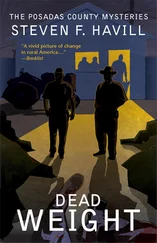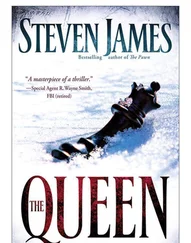Steven Levitt - Freakonomics
Здесь есть возможность читать онлайн «Steven Levitt - Freakonomics» весь текст электронной книги совершенно бесплатно (целиком полную версию без сокращений). В некоторых случаях можно слушать аудио, скачать через торрент в формате fb2 и присутствует краткое содержание. Год выпуска: 2005, ISBN: 2005, Издательство: HarperCollins Publishers Ltd., Жанр: Прочая научная литература, на английском языке. Описание произведения, (предисловие) а так же отзывы посетителей доступны на портале библиотеки ЛибКат.
- Название:Freakonomics
- Автор:
- Издательство:HarperCollins Publishers Ltd.
- Жанр:
- Год:2005
- ISBN:ISBN 0-06-083822-1
- Рейтинг книги:5 / 5. Голосов: 1
-
Избранное:Добавить в избранное
- Отзывы:
-
Ваша оценка:
- 100
- 1
- 2
- 3
- 4
- 5
Freakonomics: краткое содержание, описание и аннотация
Предлагаем к чтению аннотацию, описание, краткое содержание или предисловие (зависит от того, что написал сам автор книги «Freakonomics»). Если вы не нашли необходимую информацию о книге — напишите в комментариях, мы постараемся отыскать её.
Freakonomics — читать онлайн бесплатно полную книгу (весь текст) целиком
Ниже представлен текст книги, разбитый по страницам. Система сохранения места последней прочитанной страницы, позволяет с удобством читать онлайн бесплатно книгу «Freakonomics», без необходимости каждый раз заново искать на чём Вы остановились. Поставьте закладку, и сможете в любой момент перейти на страницу, на которой закончили чтение.
Интервал:
Закладка:
“Well then,” Venkatesh said, “how does it feel to be African American and poor?”
“I ain’t no African American either, you idiot. I’m a nigger.” J.T. then administered a lively though not unfriendly taxonomical lesson in “nigger” versus “African American” versus “black.” When he was through, there was an awkward silence. Still nobody seemed to know what to do with Venkatesh. J.T., who was in his late twenties, had cooled down his subordinates, but he didn’t seem to want to interfere directly with their catch. Darkness fell and J.T. left. “People don’t come out of here alive,” the jittery teenager with the gun told Venkatesh. “You know that, don’t you?”
As night deepened, his captors eased up. They gave Venkatesh one of their beers, and then another and another. When he had to pee, he went where they went—on the stairwell landing one floor up. J.T. stopped by a few times during the night but didn’t have much to say. Daybreak came and then noon. Venkatesh would occasionally try to discuss his survey, but the young crack dealers just laughed and told him how stupid his questions were. Finally, nearly twenty-four hours after Venkatesh stumbled upon them, they set him free.
He went home and took a shower. He was relieved but he was also curious. It struck Venkatesh that most people, including himself, had never given much thought to the daily life of ghetto criminals. He was now eager to learn how the Black Disciples worked, from top to bottom.
After a few hours, he decided to walk back to the housing project. By now he had thought of some better questions to ask.
Having seen firsthand that the conventional method of data gathering was in this case absurd, Venkatesh vowed to scrap his questionnaire and embed himself with the gang. He tracked down J.T. and sketched out his proposal. J.T. thought Venkatesh was crazy, literally—a university student wanting to cozy up to a crack gang? But he also admired what Venkatesh was after. As it happened, J.T. was a college graduate himself, a business major. After college, he had taken a job in the Loop, working in the marketing department of a company that sold office equipment. But he felt so out of place there—like a white man working at Afro Sheen headquarters, he liked to say—that he quit. Still, he never forgot what he learned. He knew the importance of collecting data and finding new markets; he was always on the lookout for better management strategies. It was no coincidence, in other words, that J.T. was the leader of this crack gang. He was bred to be a boss.
After some wrangling, J.T. promised Venkatesh unfettered access to the gang’s operations as long as J.T. retained veto power over any information that, if published, might prove harmful.
When the yellow-gray buildings on the lakefront were demolished, shortly after Venkatesh’s first visit, the gang relocated to another housing project even deeper in Chicago’s south side. For the next six years, Venkatesh practically lived there. Under J.T.’s protection he watched the gang members up close, at work and at home. He asked endless questions. Sometimes the gangsters were annoyed by his curiosity; more often they took advantage of his willingness to listen. “It’s a war out here, man,” one dealer told him. “I mean, every day people struggling to survive, so you know, we just do what we can. We ain’t got no choice, and if that means getting killed, well shit, it’s what niggers do around here to feed their family.”
Venkatesh would move from one family to the next, washing their dinner dishes and sleeping on the floor. He bought toys for their children; he once watched a woman use her baby’s bib to sop up the blood of a teenaged drug dealer who was shot to death in front of Venkatesh. William Julius Wilson, back at the U. of C., was having regular nightmares on Venkatesh’s behalf.
Over the years the gang endured bloody turf wars and, eventually, a federal indictment. A member named Booty, who was one rank beneath J.T., came to Venkatesh with a story. Booty was being blamed by the rest of the gang for bringing about the indictment, he told Venkatesh, and therefore suspected that he would soon be killed. (He was right.) But first Booty wanted to do a little atoning. For all the gang’s talk about how crack dealing didn’t do any harm—they even liked to brag that it kept black money in the black community—Booty was feeling guilty. He wanted to leave behind something that might somehow benefit the next generation. He handed Venkatesh a stack of well-worn spiral notebooks—blue and black, the gang’s colors. They represented a complete record of four years’ worth of the gang’s financial transactions. At J.T.’s direction, the ledgers had been rigorously compiled: sales, wages, dues, even the death benefits paid out to the families of murdered members.
At first Venkatesh didn’t even want the notebooks. What if the Feds found out he had them—perhaps he’d be indicted too? Besides, what was he supposed to do with the data? Despite his math background, he had long ago stopped thinking in numbers.
Upon completing his graduate work at the University of Chicago, Venkatesh was awarded a three-year stay at Harvard’s Society of Fellows. Its environment of sharp thinking and bonhomie—the walnut paneling, the sherry cart once owned by Oliver Wendell Holmes—delighted Venkatesh. He went so far as to become the society’s wine steward. And yet he regularly left Cambridge, returning again and again to the crack gang in Chicago. This street-level research made Venkatesh something of an anomaly. Most of the other young Fellows were dyed-in-the-tweed intellectuals who liked to pun in Greek.
One of the society’s aims was to bring together scholars from various fields who might not otherwise have occasion to meet. Venkatesh soon encountered another anomalous young Fellow, one who also failed the society stereotype. This one happened to be an economist who, instead of thinking grand macro thoughts, favored his own list of offbeat micro curiosities. At the very top of his list was crime. And so, within ten minutes of their meeting, Sudhir Venkatesh told Steven Levitt about the spiral notebooks from Chicago and they decided to collaborate on a paper. It would be the first time that such priceless financial data had fallen into an economist’s hands, affording an analysis of a heretofore uncharted criminal enterprise.
So how did the gang work? An awful lot like most American businesses, actually, though perhaps none more so than McDonald’s. In fact, if you were to hold a McDonald’s organizational chart and a Black Disciples org chart side by side, you could hardly tell the difference.
The gang that Venkatesh had fallen in with was one of about a hundred branches—franchises, really—of a larger Black Disciples organization. J.T., the college-educated leader of his franchise, reported to a central leadership of about twenty men that was called, without irony, the board of directors. (At the same time that white suburbanites were studiously mimicking black rappers’ ghetto culture, black ghetto criminals were studiously mimicking the suburbanites’ dads’ corp-think.) J.T. paid the board of directors nearly 20 percent of his revenues for the right to sell crack in a designated twelve-square-block area. The rest of the money was his to distribute as he saw fit.
Three officers reported directly to J.T.: an enforcer (who ensured the gang members’ safety), a treasurer (who watched over the gang’s liquid assets), and a runner (who transported large quantities of drugs and money to and from the supplier). Beneath the officers were the street-level salesmen known as foot soldiers. The goal of a foot soldier was to someday become an officer. J.T. might have had anywhere from twenty-five to seventy-five foot soldiers on his payroll at any given time, depending on the time of year (autumn was the best crack-selling season; summer and Christmastime were slow) and the size of the gang’s territory (which doubled at one point when the Black Disciples engineered a hostile takeover of a rival gang’s turf). At the very bottom of J.T.’s organization were as many as two hundred members known as the rank and file. They were not employees at all. They did, however, pay dues to the gang—some for protection from rival gangs, others for the chance to eventually earn a job as a foot soldier.
Читать дальшеИнтервал:
Закладка:
Похожие книги на «Freakonomics»
Представляем Вашему вниманию похожие книги на «Freakonomics» списком для выбора. Мы отобрали схожую по названию и смыслу литературу в надежде предоставить читателям больше вариантов отыскать новые, интересные, ещё непрочитанные произведения.
Обсуждение, отзывы о книге «Freakonomics» и просто собственные мнения читателей. Оставьте ваши комментарии, напишите, что Вы думаете о произведении, его смысле или главных героях. Укажите что конкретно понравилось, а что нет, и почему Вы так считаете.











